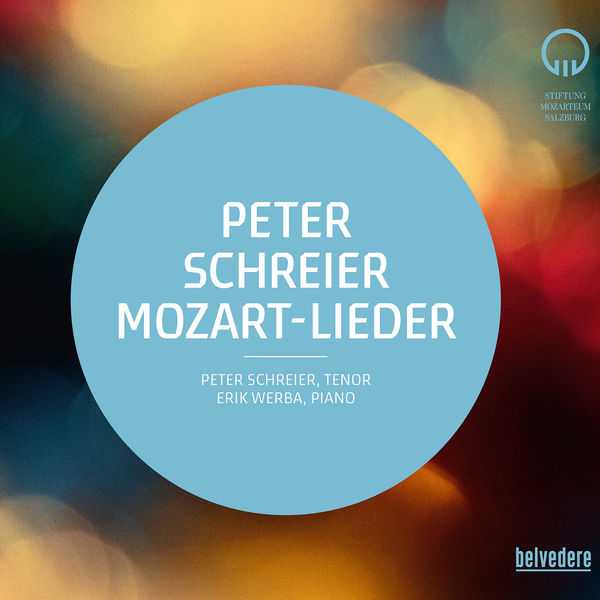
Composer: Wolfgang Amadeus Mozart
Performer: Peter Schreier, Erik Werba
Format: FLAC (tracks)
Label: Belvedere
Catalogue: BVE08022
Release: 2017
Size: 361 MB
Recovery: +3%
Scan: yes
01. An Chloe, K. 524
02. An die Hoffnung, K. 390
03. An die Einsamkeit, K. 391
04. Das Lied der Trennung, K. 519
05. Wie unglücklich bin ich nit, K. 147
06. Dans un bois solitaire, K. 308
07. Lied zur Gesellenreise, K. 468
08. Die ihr des unermesslichen Weltalls Schöpfer ehrt, K. 619
09. Die betrogene Welt, K. 474
10. Die Zufriedenheit, K. 473
11. Die Verschweigung, K. 518
12. Komm, liebe Zither, K. 351
13. Das Veilchen, K. 476
14. Das Traumbild, K. 530
15. Abendempfindung, K. 523
16. Sehnsucht nach dem Frühlinge, K. 596
17. Im Frühlingsanfang, K. 597
18. Das Kinderspiel, K. 598
19. Die Zufriedenheit, K. 349
20. Lied der Freiheit, K. 506
The recital given on January 25, 1978 by Peter Schreier, the leading Mozart tenor of the 1970s from Dresden, and Erik Werba, the distinguished Viennese song accompanist, presented 17 songs, the cantata with piano accompaniment of Die ihr des unermesslichen Weltalls Schöpfer ehrt, K 619, from the final year of Mozart’s life, and two encore pieces.
Schreier and Werba apparently wanted to present Mozart’s song repertoire in its full breadth while also omitting those songs which were very clearly to be sung from the viewpoint of a female protagonist.
Seen from today’s perspective, the Mozart songs in this recording are remarkably homogeneous. To Peter Schreier the operatic singer, Mozart was the first true Romantic. The songs are interpreted in a highly emotional manner, without ever becoming sentimental. The tempos tend to be more on the slow side of the spectrum here, as is also true in the ballad-like Das Veilchen, K 476, in which Schreier clearly interprets the mature, through-composed songs by Mozart as text-based and text-centric compositions, as if they were early forerunners of Schubert, Schumann or Brahms.